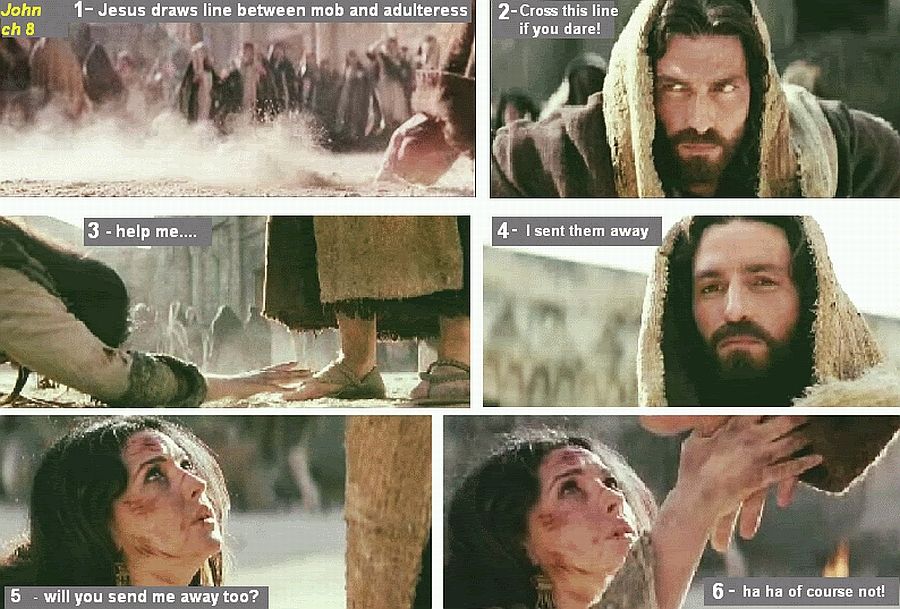Wait! I feel one of my stories coming on! This is a little tale i've woven around an incident in John chapter 4 involving a woman we'll call Leonora, to show how women have always had a central position in the Bible..
LEONORA
Leonora had had a rough life. A string of lovers had treated her bad, and now she'd ended up with another here in this remote village in old Samaria miles from anywhere, going out of her skull with boredom and feeling as if life was passing her by.
Then her latest fancy man shouted from the other room telling her to go get some water,so she trudged wearily down the road in the sweltering heat to the well.
A few travellers who she'd never seen before were sitting there in the shade of the trees looking tired, yet good-humouredly talking among themselves, and one of them smiled and asked her in a Galileean accent to draw some water for them.
She was surprised that a Jew would talk to a Samaritan , but he chatted a bit more with her about "living water" and other matters, and about her poor track record with men who used her like a doormat.
She told him how she yearned for the bright lights of Jerusalem where things happened and where it said in the ancient scriptures the Messiah would appear, though if and when that would be, nobody knew.
She said she liked to dream what he'd be like, a warrior king maybe, in bright silver armour riding a proud white horse, and that he'd explain everything to the people once and for all.
"Huh! i'll never see the Messiah stuck out here" she said as a tear rolled down her cheek, "when i die that's it, nobody'll remember me or even know i existed, and he wouldn't want to talk to somebody like me anyway..".
The man gently brushed away her tear with his fingertips, lifted her chin, gazed straight into her eyes and softly replied with a smile:- "I'm him. He's talking to you now.."
And the woman in that tiny remote village long ago will be remembered in the Bible until the end of time..
-----------------------------------------------------------------
"The woman said, "I know that Messiah" (called Christ) is coming. When he comes, he will explain everything to us."
Then Jesus declared, "I who speak to you am he." (John 4:26)



